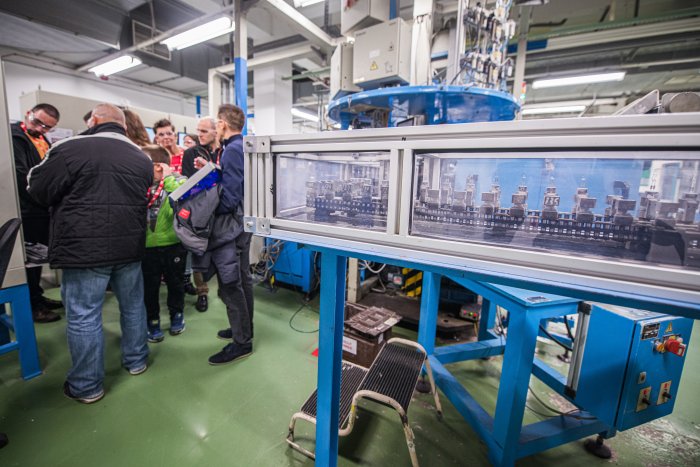Company-in-a-Box: In Europe for Europe

The COVID-19 pandemic has dealt a heavy blow to globalization as far as manufacturing companies are concerned. Many enterprises are now looking into ways of relocating their supply chains from China, which has been the global supply-chain hotspot of recent decades. Europe and Hungary could emerge as winners from this trend, Tungsram president and CEO Joerg Bauer argues in the fourth part of its mini-series published with the Budapest Business Journal.
In the wake of the COVID-19 pandemic, companies are increasingly turning their backs on globalization and shifting toward a more localized approach when it comes to supply chains, a recent study by Bank of America revealed.
According to a CNBC report covering the BoA study, 80% of the global manufacturing sector experienced supply chain disruptions due to the coronavirus crisis, forcing more than 75% to widen the scope of their existing re-shoring plans. Nevertheless, foreign companies looking to move their manufacturing processes away from China may face USD 1 trillion in related costs over a five-year horizon.
Despite the hefty price tag, the move would still be beneficial for companies in the long run, according to the report. In fact, the epidemic only lent momentum to these efforts; several developments were already pointing to a corporate migration away from China before the crisis.
One such factor was automation, a key trend of the industry 4.0 era, which rendered the availability of cheap, manual labor redundant in many sectors and workflows. Additionally, the news coverage of recent years has been dominated by international trade regulation disputes and national security concerns, fueling corporate unease worldwide and particularly in the United States. Not to mention the fact that China is a far cry from being the embodiment of a state devoted to fighting climate change.
No wonder that two-thirds of the analysts quoted by the BoA study believe that relocating production will be the most prominent business trend in the post-COVID world. According to a survey by the Massachusetts Institute of Technology, mainly high-tech companies are likely to move part or all of their production to Eastern Europe, Mexico or Brazil.
Innovation Focus
Europe and Hungary enjoy a strong position in this respect. In recent years, the government of Prime Minister Viktor Orbán has created a favorable economic environment for companies focusing on innovation, be they domestic or foreign. Moreover, under the government’s recently announced “Invented in Hungary” policy, value-added manufacturing is also held in high regard.
Hungary-based Tungsram, which operates in 100 countries around the world, has also recognized the benefits of repatriating from China to a favorably positioned Central European location, says Joerg Bauer, President and CEO of Tungsram.
The company’s “In Europe for Europe” initiative aids enterprises seeking to move their supply chains to Hungary. Being an integrator of operations and manufacturing with its headquarters in Budapest, Tungsram developed a “Company-in-the-box” service package that offers a wide range of services and facilities.
The scope of services and support includes laboratory equipment and services, world-class manufacturing, financial, IT, HR, and legal consultancy, as well as involvement in R&D projects and access to the company’s global distribution network. As suggested by the name of the initiative, European companies can benefit the most from “moving home.”
The solution requires a long-term commitment from both the investor and the service provider, adds Bauer. The structure of the service allows investors to focus on their core business as the need for investment is significantly reduced and the risk of business failure also declines considerably, while the re-organization of operations can be accelerated by up to 12 months.
SUPPORT THE BUDAPEST BUSINESS JOURNAL
Producing journalism that is worthy of the name is a costly business. For 27 years, the publishers, editors and reporters of the Budapest Business Journal have striven to bring you business news that works, information that you can trust, that is factual, accurate and presented without fear or favor.
Newspaper organizations across the globe have struggled to find a business model that allows them to continue to excel, without compromising their ability to perform. Most recently, some have experimented with the idea of involving their most important stakeholders, their readers.
We would like to offer that same opportunity to our readers. We would like to invite you to help us deliver the quality business journalism you require. Hit our Support the BBJ button and you can choose the how much and how often you send us your contributions.







